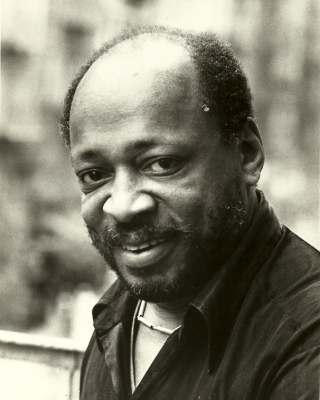Elizabeth Thompson, Trinity Communications

Tia Smith was introduced to the works of Black playwright Steve Carter by her twin sister. “My sister studies theater at Northwestern,” said Smith, who is graduating from Duke with majors in Theater Studies and African & African American Studies.
“When Steve Carter died in 2020 my sister saw his obituary in the New York Times. She was taking a class on the Black Arts Movement and had to write a paper about a Black Arts Movement playwright who was not covered in class. So, she chose to research Steve Carter and write about his play, Eden. She told me, ‘This is Black Romeo and Juliet.’ I was motivated to do my own research about Eden after she introduced me to it.”
Smith’s research culminated in her distinction project, “The Making of Eden: An Exploration of the Black Theatrical and Political Climate of Steve Carter’s Pan-African Romeo and Juliet.” Her research was funded by a Mellon Mays Undergraduate Fellowship, which allowed her to do archival research last summer at the Schomburg Center for Research in Black Culture in New York and in the Special Collections at the Harold Washington Library Center in Chicago.
Eden, written in 1976, was Carter’s first full-length play and the first in a trilogy of works about Caribbean immigrants living in New York City. The plot of Eden centers on a thwarted romance between a young Black man from the South and a teenage West Indian girl, who can’t be together because of the objections of the girl’s father.
“Eden was often referred to by critics as a Black Romeo and Juliet, and so they focused a lot on the love story,” Smith said. “Some critics took the view that racism is a part of every community because we see Black people discriminating against each other, but they were ignoring what was happening in society at large in the 1920’s, when the play was set. The father’s call for racial purity, which aligns with the Eugenics Movement, and the downfall of Garveyism get minimized or discarded when we talk about the play. For me, the play underscores that the things we do in the day-to-day are indicative of these larger currents going on in society.”

Researching Carter was challenging because he isn’t a well-known playwright. “Very little is actually written about Steve Carter, academically,” Smith said. “He's included in a couple of encyclopedia entries and some of his plays are still in publication, but in terms of academics engaging with his works, I think I've come across two published articles. Carter doesn't have an archive. So, I had to learn about him through the lens of director Edmund Cambridge and the Negro Ensemble Company, who produced Eden in 1976.”
Despite the fact that Steve Carter and his plays aren’t more widely recognized, Smith uncovered evidence that his works had an important influence on his contemporaries working in Black theater. “Someone wrote a letter to him that said, ‘This is the most amazing play, and I think it's really important that you are addressing the conflict between Black Americans and Black West Indians. Every Black playwright needs to tackle this issue.’ Or the very famous regional director, Chuck Smith of the Goodman Theatre in Chicago, saw a production of Eden in New York and was so fascinated by the play that a couple of days later he wrote to Carter asking for the rights to produce it.”
For Smith, the most rewarding part of her distinction project has been helping to raise awareness of Carter and his works. It’s an undertaking she hopes to continue after graduation, when she attends the David Geffen School of Drama at Yale University, pursuing an MFA in dramaturgy and dramatic criticism.
Smith knows there is more to do to share Steve Carter’s works with a new generation. “Eden is just the first play in Carter’s Caribbean Trilogy,” she said. “I would really love one day to see all three plays published together, and perhaps I'd be able to write an introductory essay for the collection. That would be wonderful.”